Top Trading Apps
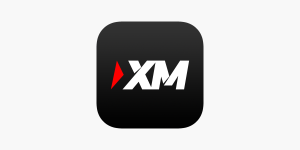
XM
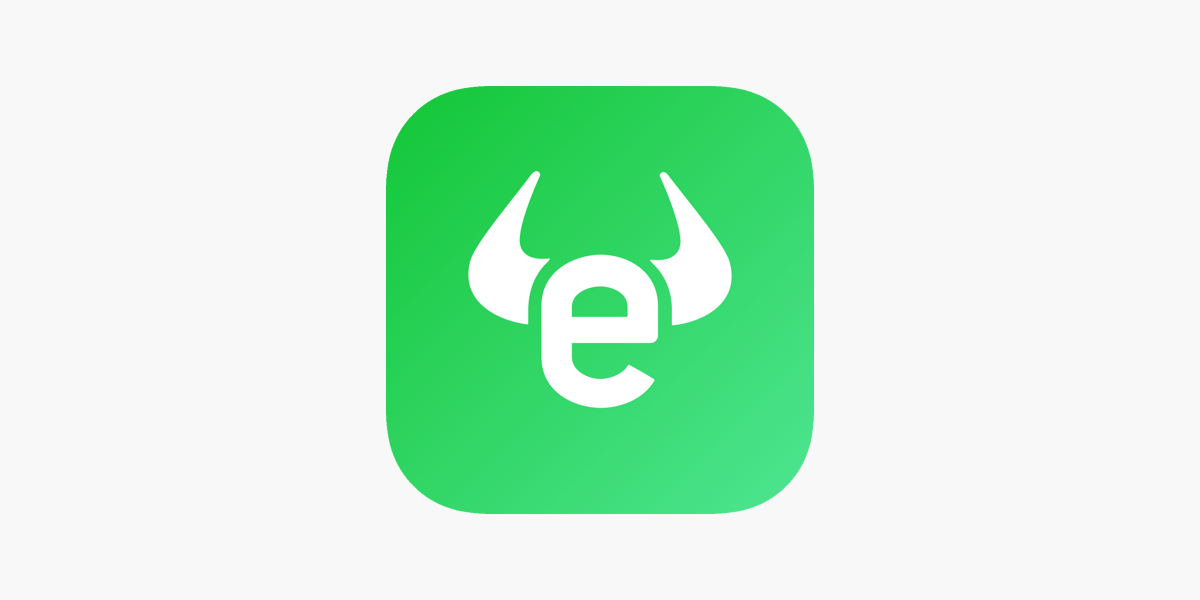
eToro
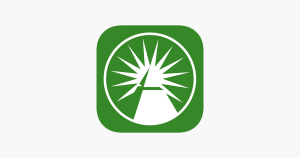
Fidelity

Webull
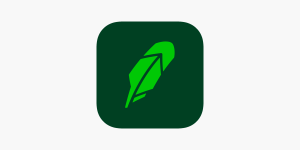
Robinhood
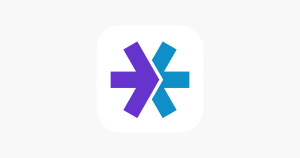
E*TRADE
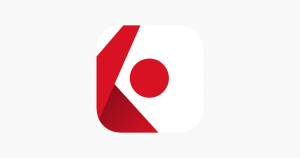
Interactive Brokers
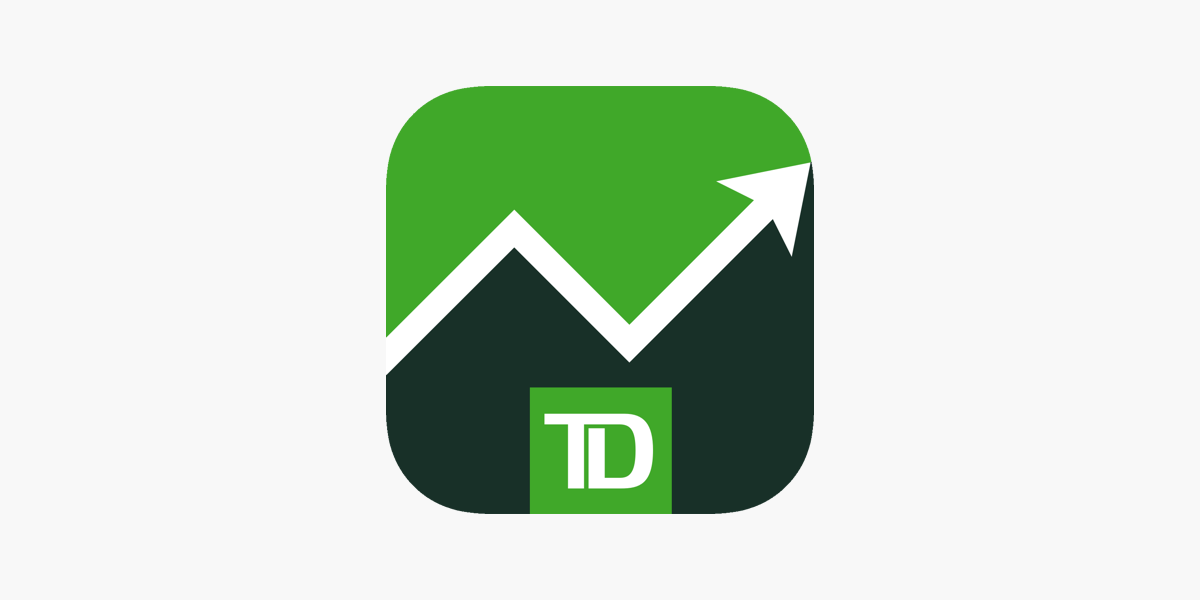
TD Ameritrade
In the digital age, the proliferation of mobile investing has revolutionized the way individuals interact with the stock market. Trading apps have made it possible for traders to access the markets from anywhere, offering the convenience of buying and selling securities through just a few taps on a smartphone. With an array of features like real-time streaming data, charting tools, and portfolio management capabilities, these apps are catering to both seasoned investors and those new to the world of trading.
The competitive landscape of online brokerage platforms is constantly evolving, with each app vying to provide the best tools, bonuses and user experience. A select few stand out for their robust functionality and user-friendly interfaces, providing top-notch services that align with various trading strategies and preferences. High-performing apps such as Interactive Brokers offer extensive customizable options for professionals, while platforms like Fidelity appeal to a broader audience with commission-free trades and extensive research resources.
As the market becomes increasingly accessible, users are benefiting from the education and resources that these platforms provide, helping to demystify the complexities of investing. This accessibility ensures that a wide range of investors can engage with financial markets, manage their investments, and build portfolios tailored to their individual goals, all powered by the convenience and technology of today’s best trading apps.
Evaluating Trading App Features
When selecting a trading app, investors should prioritize apps that offer an intuitive user experience and substantial educational resources. These two features can greatly influence the efficiency and growth of a trader’s journey.
User Experience and Interface
The user interface (UI) of a trading app is crucial because it dictates how easily users can navigate the platform and manage their investments. A user-friendly design accommodates both newcomers and seasoned traders, promoting a seamless transition between different features and markets. For example, the Thinkorswim app by TD Ameritrade is renowned for its robust, yet accessible UI, catering to active traders with efficiency.
Apps should also deploy a responsive design that’s optimized for various devices, ensuring consistent functionality whether on a desktop or mobile device. Trading platforms with customizable dashboards and easy-to-read charts empower users to tailor their trading environment to their individual needs.
Functionality and Educational Resources
Effective trading apps must also be evaluated on their functionality. This includes the breadth of investment options available, from stocks and options to cryptocurrencies. For instance, apps like E*Trade and Merrill Edge offer diverse trading capabilities, fitting for a range of investment strategies.
Moreover, educational resources are a cornerstone for enhancing user experience. Apps such as Fidelity deliver comprehensive learning materials that help users understand market dynamics and develop trading acumen. This can range from articles and tutorials to webinars and interactive tools, all designed to provide users with the knowledge required to make informed trading decisions.
Understanding Fees and Costs
When evaluating trading apps, investors should consider the variety of fees and associated costs that can affect their returns. These can range from brokerage fees to account minimum requirements, all of which play a crucial role in the selection process.
Comparing Brokerage Account Fees
Brokerage account fees are one of the primary considerations when choosing a trading app. These fees can include charges for account maintenance, withdrawals, and inactivity. For instance, while some apps offer commission-free trades, others might compensate by charging higher service fees. MoneyMade offers insights into the various fees that different stock trading apps implement, be it service fees, option fees, or margin rates. It’s essential to compare these costs as they directly impact investment profitability.
Account Minimums and Trading Fees
The requirement to maintain a certain account balance, known as account minimums, can vary greatly from one trading app to another. For example, some apps may require a minimum balance as low as $1 to get started, while others might set higher thresholds for participation in automated investing strategies, as stated by Business Insider. Additionally, trading fees are another key cost investors face. These can be a fixed fee per trade or a percentage of the trade volume. Always read the fine print to understand the true cost of your trades.
Diversity of Investment Options
When selecting a trading app, investors should prioritize the availability of a wide range of investment instruments. This ensures the flexibility to diversify portfolios and adapt to market changes.
Stocks, Bonds, and ETFs
Investors often seek trading apps that offer a robust selection of stocks, bonds, and exchange-traded funds (ETFs). For instance, E*Trade is notable for its comprehensive array of investment options that facilitate portfolio diversification with its user-friendly interface.
Cryptocurrencies and Forex
The trading landscape now includes cryptocurrencies and forex as essential components. Some platforms, like eToro, have emerged as frontrunners, especially for US investors interested in a varied mix of traditional investments and modern digital assets. These platforms also offer the advantage of real-time exchange rate trading for currency pairs in the forex market.
Research and Analysis Tools
In the realm of trading apps, research and analysis tools form the backbone of informed decision-making. With a blend of market data and sophisticated algorithms, these tools provide traders with critical insights to anticipate market movements and identify trading opportunities.
Market Research and Indicators
Market research and indicators are essential for traders seeking to understand the broader economic environment. They make use of real-time data and historical trends to offer a comprehensive view of market health. The best trading apps will feature a variety of indicators, such as moving averages and oscillators, which can signal buy or sell opportunities. For instance, the 10 Best Technical Analysis Software for Trading emphasizes the importance of such tools in forecasting market turns and trends.
- Key Indicators Include:
- Moving Averages (Simple and Exponential)
- Relative Strength Index (RSI)
- Moving Average Convergence Divergence (MACD)
These indicators paint a picture of the market’s momentum and can be pivotal in formulating trading strategies.
Charting and Screeners
Accurate charting and powerful screeners are at the core of any trader’s toolkit. Charting tools allow traders to visualize financial data with ease, translating complex figures into understandable charts. Screeners, on the other hand, help traders sift through vast amounts of data to discover stocks or other assets that match their criteria.
The sophistication of these tools varies across platforms, as highlighted by Investopedia’s review of technical analysis software. Advanced features may include:
Charting Tools:
- Interactive charts
- Multiple time frame analysis
- Candlestick patterns
Screening Features:
- Customizable filters for stocks, forex, and commodities
- Integration with market research
- Alerts for price movements or technical configurations
Providing a bird’s-eye view or a granular examination, charting and screeners give traders the power to analyze and act with precision.
Support and Customer Service
Choosing the right trading app requires careful consideration of the support and customer service options available. Users should be aware of how they can reach customer support and what broker-assisted support options are offered to enhance their trading experience.
Access to Customer Support
Most top-tier trading apps provide multiple channels through which traders can access customer support. These typically include:
- Email: A vital channel for detailed inquiries that are not time-sensitive.
- Live Chat: Offers real-time assistance and quick answers to traders’ questions.
- Phone Support: Essential for urgent and complex issues that require immediate attention.
Some apps may also feature expansive FAQ sections and help centers, allowing users to find answers independently.
Broker-Assisted Support Options
Broker-assisted support can be a critical service for traders who require expert guidance with their transactions. Key considerations include:
- Availability: Broker assistance should be accessible during all trading hours.
- Fees: Some apps may charge for broker-assisted trades, while others offer this service for free.
Trading apps like Moneyzine delineate the importance of educational resources and customer service when evaluating an app’s overall offerings. It’s essential that traders examine the levels of broker support provided and any associated costs which may impact their investment decisions.
Security and Safety
When engaging in online trading, investors prioritize the safety of their investments and seek confidence in the security measures provided by mobile trading platforms. Brokerages are expected to employ robust protocols to protect client assets and personal information.
Protecting Your Investments
Investors should ensure that their chosen brokerage app provides strong asset protection. This includes services like Securities Investor Protection Corporation (SIPC) insurance, which can safeguard investments up to certain limits in the case of a broker’s failure. Additionally, the integrity of a brokerage is often reflected in its regulatory compliance, with entities such as the Financial Industry Regulatory Authority (FINRA) overseeing operations to ensure adherence to industry standards.
Secure Mobile Trading
Mobile trading apps must have advanced encryption methods to secure trades and personal data transmitted over networks. Two-factor authentication (2FA) and biometric logins greatly enhance account security, reducing the risk of unauthorized access. Moreover, investors should be attentive to the mobile app’s continuous updates and patches, which address vulnerabilities and enhance safety features regularly.
Trading Platforms for Beginners to Active Traders
Whether an individual is starting their journey in the stock market or is actively engaging in options trading, selecting the right platform is crucial. They need tools that cater to their proficiency level, ensuring a balance between user-friendliness and advanced functionalities.
Apps for Novice Investors
For beginner investors, ease of use and educational resources are paramount. Fidelity offers a seamless entry point with a $0 minimum deposit and commission-free trades, making it an accessible choice for those new to stock and ETF investing. Encouraging a step-by-step learning approach, E*TRADE stands out for its intuitive trading app tailored to novice users.
Tools for Experienced Market Participants
Active traders require platforms that provide sophisticated charting, rapid execution, and an expansion of tradable securities, including options. Charles Schwab delivers detailed market research and a wide array of tools ideal for more experienced participants. Interactive Brokers caters to those involved in global markets with extensive investment offerings and advanced risk management tools.
Mobile Devices and OS Compatibility
When selecting a trading app, it is crucial for traders to consider compatibility with their mobile device’s operating system. This ensures a smooth user experience and seamless access to financial markets.
Trading on Android Devices
Traders using Android devices have a vast selection of apps designed for the flexibility and customization that the platform allows. Apps like MetaTrader 4 offer advanced charts and analysis tools tailored for Android. Users can expect comprehensive functionality with apps optimized for the Android OS, maintaining speed and reliability across different Android smartphones and tablets.
Investing with iOS Apps
For those with Apple devices, the iOS platform provides a secure and intuitive environment for trading apps. Apps such as Schwab Mobile leverage the robust features of iOS to deliver a user-friendly experience geared toward investors. iOS apps typically focus on aesthetic design and ease of use, ensuring that users can navigate the app effortlessly on both iPhones and iPads.
Automated and Robo-Advisor Investing
The evolution of technology has introduced a revolutionary way of investing—through automated platforms and robo-advisors, which provide sophisticated, algorithm-driven financial planning services with little to no human supervision.
Benefits of Automated Investment Services
Automated investing services, often powered by robo-advisors, have ushered in an era of efficiency and precision in investment management. Individuals have the advantage of low-cost services and diversified portfolios, typically based on market algorithms. These services are especially beneficial for those who are just beginning to navigate the investment space due to their minimal entry barriers in terms of account minimums and fees. For instance, certain automated investing platforms offer account setups with as low as a $1 minimum and charge only a 0.25% annual fee for automated investing solutions.
Investing with robo-advisors also offers hands-off portfolio management, allowing individuals to engage in other activities while their investments are managed automatically. These platforms often include features like dynamic tax-loss harvesting, a strategy aimed at reducing taxable income through the sale of losing investments.
Choosing the Right Robo-Advisor
Selecting the appropriate robo-advisor requires evaluating several factors, including investment strategies, fees, and account types offered. Investors should look for platforms that align with their financial goals and risk tolerance. As of 2025, leading robo-advisor platforms provide a variety of features, such as fee-free stock investing and low-interest rate borrowing options, illustrating the range of services available to accommodate different investment preferences.
Reliability and reputation are crucial; investors consider platforms that have received positive ratings, for example, a platform with a NerdWallet rating of 4.9 /5 indicates a high level of trust and satisfaction among users. Equally important is an assessment of the cost of services, where investors should watch for hidden fees and the cost efficiency of the advised portfolios.
Building Your Investment Portfolio
When selecting a trading app, it’s essential to consider not only its ability to execute trades but also how it supports the ongoing management and growth of one’s investment portfolio.
Portfolio Management Tools
The best trading apps provide a comprehensive set of portfolio management tools. They allow investors to track their assets and analyze their portfolio’s performance over time. For example, apps highlighted by Moneyzine come equipped with capabilities to receive trading signals, monitor various investments, and access real-time market data. These tools are crucial for investors who want to stay informed and make data-driven decisions.
- Features to look for:
- Real-time analytics
- Asset allocation overview
- Performance history reports
Balancing Risk and Growth
Understanding risk tolerance is critical when building an investment portfolio. A top-tier investment app should help users find the right balance between risk and potential growth. The Forbes Advisor outlines apps that cater to various investor profiles, from conservative to aggressive, by offering insights into risk management strategies and growth opportunities.
- Balancing Strategies:
- Diversification: Spreading investments across different asset classes.
- Assessing Volatility: Evaluating potential price fluctuations.
- Regular Rebalancing: Adjusting the portfolio to maintain the desired risk level.
Top Trading Apps Review
In this review, we evaluate the functionalities, user experience, and performance of prominent trading apps. These insights can guide traders in selecting an app that fits their investment strategy and preferences.
Highlighting Key Players
Fidelity: Known for its comprehensive research tools and $0 trade commissions, Fidelity offers an informative experience for traders. Webull: This platform boasts robust charting and analysis tools, making it a favorite among technical traders. E*Trade: Excellent for beginners and seasoned traders alike, with a user-friendly interface and extensive educational resources. Robinhood: A pioneer in commission-free trading, Robinhood caters to a mobile-first audience emphasizing simplicity and ease of use. Charles Schwab: A standout for its full-service approach, Charles Schwab provides a broad range of investment options and services. TD Ameritrade: Highlights include an advanced thinkorswim platform and extensive trader education. Sofi Invest: Offers a unique approach with social investing and the ability to win up to $1,000 in stock when funding a new account.
eToro: Known for social trading features, eToro allows users to mimic the trades of successful investors. TradeStation: A choice for experienced traders, providing advanced tools and options for strategy testing. Acorns: Best for those who prefer a “set it and forget it” investing strategy through automatic round-ups. Ally Invest: Offers a balanced platform suitable for both active traders and long-term investors.
Comparative Analysis and Ratings
- User Interface: Robinhood and E*Trade score high for their intuitive designs, while TradeStation’s complexity might pose a challenge for new traders.
- Research and Tools: Fidelity and TD Ameritrade exceed expectations with their extensive research offerings and tools.
- Fees: With most platforms now offering $0 commissions on stocks and ETFs, it’s a draw in this category for budget-conscious investors. Nevertheless, other fees such as for options trading or margin accounts differ and should be considered. NerdWallet identifies platforms like Fidelity with Fees $0 per trade for online U.S. stocks and ETFs.
| App | User Rating | Commission Fees | Research Tools | User Interface |
|---|---|---|---|---|
| Fidelity | 5/5 | $0 | Extensive | Intuitive |
| Webull | 4.5/5 | $0 | Robust | Advanced |
| E*Trade | 4/5 | $0 | Strong | User-friendly |
| Robinhood | 4/5 | $0 | Basic | Simplistic |
| Charles Schwab | 4.5/5 | $0 | Comprehensive | Sophisticated |
| TD Ameritrade | 4.5/5 | $0 | Superior | Professional |
| Sofi Invest | 4/5 | $0 | Moderate | Streamlined |
| eToro | 4/5 | $0 | Social-focused | Innovative |
| TradeStation | 4.5/5 | $0 | High-level | Complex |
| Acorns | 3.5/5 | Low | Limited | Simplistic |
| Ally Invest | 4/5 | $0 | Good | Balanced |
Ratings are crucial in differentiating between the myriad of options available, where a higher rating often suggests better user satisfaction and app performance. NerdWallet and Forbes Advisor, for instance, provide detailed reviews and ratings, allowing potential users to compare Best Investment Apps - Forbes Advisor.
Frequently Asked Questions
The apps discussed here are selected for their user-friendliness, high ratings, and low-cost options ideal for first-time and professional traders alike. Each app offers unique features tailored to different types of investors.
What are the most user-friendly trading apps for beginners?
For those new to stock trading, apps like Robinhood and Acorns provide straightforward, intuitive platforms that simplify the investment process.
Which are the highest-rated trading apps for earning money?
Highly rated apps for earning money through trading include Betterment and Fidelity, known for their advanced tools and comprehensive features that cater to both casual and serious investors.
What are the top recommended trading platforms for first-time investors?
First-time investors often find success with platforms such as Stash and Ellevest, designed to make investing approachable with educational resources and user support.
Which trading platforms offer free trades and low fees for users?
Robinhood and Public are platforms that attract users with commission-free trades and minimal fees, allowing for cost-effective trading.
On which app do most professional traders rely?
Professional traders often prefer platforms like Interactive Brokers for its robust trading tools, extensive market access, and sophisticated analysis capabilities.
What characteristics distinguish the best stock trading apps for novice users?
The best stock trading apps for novices are characterized by easy-to-navigate interfaces, educational content, and low entry barriers such as minimal account requirements and no fees for basic services. Robinhood and Acorns are notable examples.
© 2025 Trading Apps - All Rights Reserved | Sitemap | About | Contact | Privacy Policy
